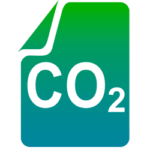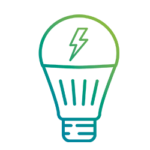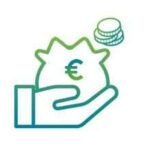
The energy audit: a strategic tool for the company
Companies with more than 250 employees or an annual turnover of more than €50 million and an annual balance sheet of more than €43 million must carry out an energy audit every 4 years. This is the application of the European directive on energy efficiency 2012/27/EU, for which the French regulation has set the first deadline at 5 December 2015.
Companies that have implemented an energy management system certified according to the ISO 50001 standard are exempt from this obligation within the certified scope.
Of course, SMEs, which are not affected by the obligation, can also benefit from this structured approach.

The energy audit is a very useful tool for companies
What is the benefit of the audit?
The energy audit is an inventory of the energy consumption of a given entity and the resulting recommendations for energy saving actions and the integration of renewable energy. Beyond the fact that it is mandatory for some, it is a very useful tool when you are looking to optimise your energy efficiency in the most comprehensive approach possible to your energy performance, while complying with or anticipating the regulations.
An energy audit generates two main deliverables :
- a detailed view of the energy consumption of the audited entity (where, how and for what purpose is energy consumed on the site ?),
- a plan of actions that can be taken within 2 to 4 years.

An energy audit covers at least 80% of the company’s energy bills
What is the scope of the audit ?
The scope of an energy audit includes the following uses :
- buildings (lighting, heating, air conditioning),
- industrial processes,
- transport (own fleet of vehicles).
Under the European directive on energy efficiency 2012/27/EU, the mandatory energy audit must cover at least 80% of the company’s energy bills.

The secret of a successful energy audit: the participatory method
A proven participatory method
At Orygeen, we use a participative method that allows a real transfer of know-how.
We apply the EPS method (Energy Potential Scan), invented in the Netherlands and deployed in the framework of branch agreements in Belgium, in accordance with the European standard NF EN 16247 (1 to 4).
This method differs from traditional energy audits because :
- the consultant, who is both a facilitator and a catalyst of the company’s internal technical knowledge, works in close collaboration with the internal resources of the audited company;
- the determination of energy consumption and optimisation comes from the audited company.
This makes it possible to obtain :
- a real technical quality in the work, because the internal resources of the audited company know the installations best and it is they who, under the guidance of the consultant, define the figures and generate the ideas;
- a high level of acceptance of the ideas selected, as they come from within the company and not from outside;
The improvement in the energy operation of the company continues after the consultant has left, as the internal contacts from the audit remain in the company after the audit has been completed.
Concretely, Orygeen intervenes in 2 steps to :
1.
Carry out a diagnosis and in-depth analysis of energy consumption (ECA or Energy Consumption Analysis) in order to obtain a consumption table for one or more years and define reliable energy performance indices,
2.
Identify energy improvement opportunities (Scan’s) and evaluate their economic profitability and technical feasibility in order to define the action plan proposed to the audited company.
Beyond the mandatory nature of the regulatory audit every 4 years, a systemic diagnosis can obviously be carried out in companies that are not obliged to do so in order to identify real optimisation levers, improve their energy performance and thus contribute to achieving their environmental objectives.






